Over the last two years we have been pleased to welcome the following faculty members:
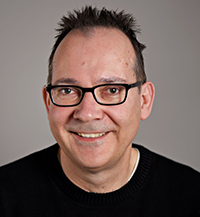 Harald Bathelt (Professor, UTSG)
Harald Bathelt (Professor, UTSG)
The focus of Professor Harald Bathelt’s research and teaching activities is in economic geography. A relational approach, which emphasizes economic and social processes in spatial perspective, provides the analytical framework for his research. This rests on the basic propositions that economic action and interaction are (i) shaped by the context of social and institutional relations, (ii) path-dependent and (iii) at the same time contingent. The agenda behind Harald’s research is to better understand regional economic development, especially how jobs and income opportunities can be created and sustained in an equitable fashion. This research is interdisciplinary in nature and focuses on the following areas: First, he has established a research program that scrutinizes the causes and consequences of interregional inequality and regional economic development. This research pays attention to the effects of regional, interregional and international networks that are created through flows of people and investment activity. A second ongoing research project explores knowledge generation processes over distance and the importance of temporary proximity, particularly the role of international trade fairs and conferences in the global economy. Finally, he has an active research agenda that investigates the dynamics of regional economic clusters, especially their emergence, institutional basis and ability to overcome political/economic crises, as well the formation of global networks of clusters.
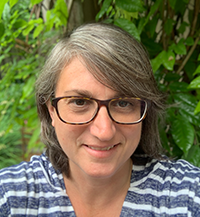 Natalie Oswin (Associate Professor, UTSC)
Natalie Oswin (Associate Professor, UTSC)
Natalie Oswin is an associate professor at UTSC, with a focus on queer geographies. Her previous work examined the post-apartheid LGBTQ movement in South Africa, and the sexual politics of Singapore’s colonial and postcolonial development processes (see her 2019 book Global City Futures: Desire and Development in Singapore). She is currently engaged in research on the work experiences of LGBTQ people in Sudbury and Windsor. Her work emphasizes putting queer theory into conversation with postcolonial, critical race, and feminist theories to examine how heteronormativity (as a raced, classed, gendered, and sexualized logic) takes place. A second area of research examines urban mobilities, with publication on the lives of street vendors in Sa Pa and Hanoi, Vietnam, and work in progress on the importation of the ‘Singapore model’ of urban development to Hanoi. She is also managing editor of the interdisciplinary journal Environment and Planning D: Society and Space and the Society and Space Magazine.
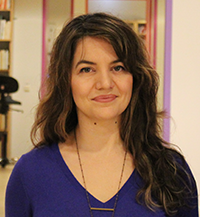 Hulya Arik (Assistant Professor, UTSC)
Hulya Arik (Assistant Professor, UTSC)
Hulya Arik is an Assistant Professor at the Geography Department at the University of Toronto. She received her Ph.D. in 2015 from York University’s Geography Department in Toronto with a dissertation title: Secular Bodyscapes: Corporeal and Emotional Intersections of Security and Secularism in the Turkish Military. Prior to her position at UofT Arik was a postdoctoral researcher at the University of Gothenburg Cultural Sciences Department where she conducted research on the cultural and creative geographies of secularism and Islam in Istanbul, Turkey. Arik published several articles in academic journals such as Gender, Place and Culture, Social and Cultural Geography, and Security Dialogue.
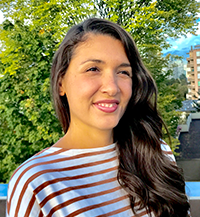 Michelle Daigle (Assistant Professor, UTSG)
Michelle Daigle (Assistant Professor, UTSG)
Michelle Daigle is Mushkegowuk, a member of Constance Lake First Nation in Treaty 9, and of French ancestry. She has a joint appointment in the Centre for Indigenous Studies and the Department of Geography & Planning. Her research examines Indigenous resurgence and freedom within the global conditions of colonial capitalist violence. Her current project focuses on the renewal of Indigenous relations of care that emerge through Mushkegowuk mobilities, and how those generate decolonial possibilities. Over the past several years, she has also collaborated with Dr. Magie Ramirez, in an effort to build grounded theorizations of decolonial geographies. Before joining UofT, Michelle was a Postdoctoral Research Fellow and Assistant Professor at the University of British Columbia. Her work has been published in Antipode, Environment & Planning D, Political Geography and Decolonization: Indigeneity, Education & Society.
 Rachel Goffe (Assistant Professor, UTSC)
Rachel Goffe (Assistant Professor, UTSC)
Rachel Goffe is a geographer and a licensed architect. Her research lies at the intersections of place-making, livelihood and the state regulation of space. Broadly speaking, her work aims to understand transformations of the postcolonial state by examining how formality (in relation to land and livelihood, for example) is differently defined over time. Her fieldwork focuses on the encounter between recent policy to curtail squatting and traditions of Black life that emerged through durable yet insecure possession of small parcels of land in Jamaica, where she is from originally. Dr. Goffe earned a Bachelor of Architecture from Temple University and a Ph.D. from the Graduate Center of the City University of New York. She is an Assistant Professor of Geography at University of Toronto.
 Christopher Higgins (Assistant Professor, UTSC)
Christopher Higgins (Assistant Professor, UTSC)
Christopher Higgins’s research is focused on the relationship between form and function in cities. Using the tools and methods of GIS/geographic data science, he models the urban morphological properties of the built environment, transportation networks and the flows of people, goods, and information they facilitate, and the use of the city as an area or volume for engaging in activities. By providing a window into how the dynamic state of cities impacts and is impacted by social, environmental, and economic processes, his work seeks to better inform policy and planning interventions and promote more sustainable urban outcomes. Recent application areas include:
– Modelling transportation accessibility to food banks, vaccination sites, and essential services for different neighbourhoods and population groups
– Developing theory and methods for analyzing the volumetric properties of complex urban built environments
– Estimating the real estate impacts of changes in transportation accessibility and their extensions to land value capture
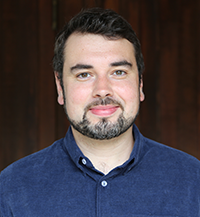 Zachary Hyde (Assistant Professor, UTSC)
Zachary Hyde (Assistant Professor, UTSC)
Zachary Hyde is a new assistant professor in the Department of Human Geography at the University of Toronto-Scarborough, where he teaches in the City Studies Program. His background is in urban sociology and geography and his primary research and teaching interests are in urban politics, specifically housing, development, and gentrification. Zachary’s dissertation research looked at how city governments exchange density for affordable housing with developers. He has also conducted research on restaurants and gentrification in Vancouver’s Downtown Eastside and on the displacement of small businesses from the Honest Ed’s redevelopment in Toronto.
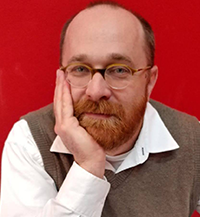 Damian Maddalena (Assistant Professor, UTM)
Damian Maddalena (Assistant Professor, UTM)
Damian Maddalena, is a new Assistant Professor, in GGE (51%) and IMI (49%) at UTM. Broadly, Damian’s research looks at agricultural sustainability in a changing climate at various scales. His background is in geospatial science, landscape ecology, and ecohydrology (including work in stable isotope hydrology). He is particularly interested in work using open source geospatial tools. Prior to spending the last five years in the private sector working in agriculture, he did his postdoc at Oak Ridge National Lab, working with large data sets on the supercomputers there. Before obtaining a PhD, Damian was a public school teacher in the United States, and greatly values and enjoys the teaching that is part of his role at UTM.
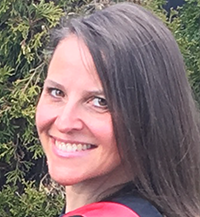 Carolyn DeLoyde (CLTA Assistant Professor, Teaching Stream, UTSG)
Carolyn DeLoyde (CLTA Assistant Professor, Teaching Stream, UTSG)
Dr. Carolyn DeLoyde MCIP, RPP is an Assistant Professor in the Department of Geography and Planning and the Environmental Planning Concentration Advisor in the Planning Program. She is a Member of the Canadian Institute of Planners and a Registered Professional Planner with 25 years of land use and environmental planning experience. Her research is in the field of urban planning and geography with a focus on the intersection of the natural environment and the built urban form; she has presented her work to major groups in the USA and Canada. Carolyn has authored works in the International Encyclopedia of Human Geography (Elsevier) and a chapter for Routledge’s Handbook of Methodologies in Human Geography. Carolyn has degrees from Laurentian University (B.A Hons. Geography), and Queen’s University (MPL Urban and Regional Planning, PhD Geography and Planning).
 Sarah Peirce (CLTA Assistant Professor, Teaching Stream, UTSG)
Sarah Peirce (CLTA Assistant Professor, Teaching Stream, UTSG)
Sarah Peirce joined the U of T faculty at the St. George Campus as a CLTA Assistant Professor, Teaching Stream in July 2019. Sarah teaches many of the physical geography courses including Geomorphology, Introduction to Soil Science, Canadian Arctic and Subarctic Environments, and Biogeography. Before teaching at U of T, Sarah was a Mitacs Elevate postdoctoral fellow investigating the performance and geomorphic monitoring practices of natural channel design projects in Southern Ontario. Sarah’s previous postdoctoral and Ph.D. work at the University of Waterloo and Western University, respectively, made use of physical models of rivers to examine sediment transport and morphological change.
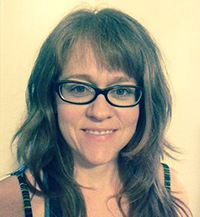 Lindsay Stephens (CLTA Assistant Professor, UTSG)
Lindsay Stephens (CLTA Assistant Professor, UTSG)
Lindsay Stephens joined the U of T faculty at the St. George campus as a CLTA Assistant Professor in August 2019. Prior to joining the department, she held a lecturer appointment at the Department of Human Geography at UTSC. Her interrelated research interests include social justice and social planning; accessibility and disability; community engagement, community engaged research and social change; micropolitics, emotion, affect and the body. Her current research focuses on developing participatory, community-based solutions to issues of accessibility. Lindsay teaches core curriculum in the graduate Planning program including PLA 1108 Communication in the Face of Power and PLA 1107Y Current Issues Paper. Lindsay holds both a PhD in Geography & Collaborative Program in Women Studies and a MScPl in Urban Planning from the University of Toronto.
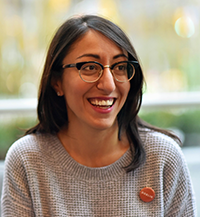 Zahra Ebrahim (Adjunct Professor, UTSG)
Zahra Ebrahim (Adjunct Professor, UTSG)
Zahra Ebrahim is a public interest designer and strategist, focused on shifting power to people who are typically underrepresented in institutions and systems. Her work has focused on deep, community-led approaches to policy, infrastructure, and service design. She is the Co-Founder of Monumental, an organization focused on supporting organizations’ work towards an Equitable Recovery from COVID-19. She is an Executive Advisor to Deloitte on Cities and Design, and a senior advisor to political and public interest initiatives across the country. Zahra has taught at OCADU, MoMA, and currently teaches at the University of Toronto Scarborough. She was recently named Next City’s Vanguard “40 under 40 Civic Leader”, Ascend Canada’s Mentor of the Year, one of “Tomorrow’s Titans” in Toronto Life, and one of WXN’s Top 100 Women in Canadian Business.
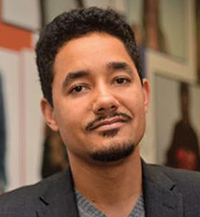 Kofi Hope (Adjunct Professor, UTSG)
Kofi Hope (Adjunct Professor, UTSG)
Kofi Hope is a Rhodes Scholar and has a Doctorate in Politics from Oxford University. He is the Senior Policy Advisor at the Wellesley Institute and the co-founder of Monumental, a new start-up focused on supporting organizations working towards an equitable recovery from COVID-19. He is an emeritus Bousfield Scholar and current adjunct professor at U of T’s Program in Planning. He was founder and former Executive Director of the CEE Centre for Young Black Professionals. In 2017 he was winner of the Jane Jacobs Prize and in 2018 a Rising Star in Toronto Life’s Power List.


